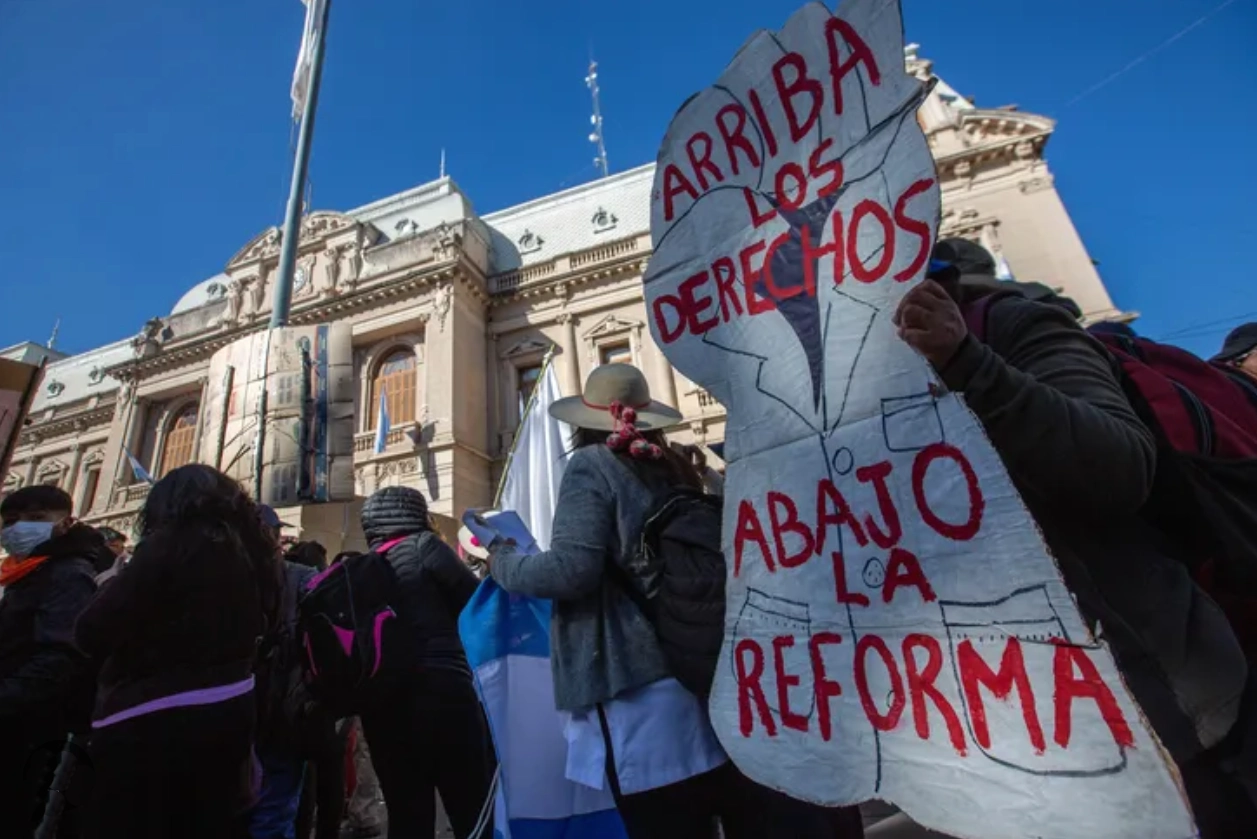By mid-June, the governor of the Argentine Province of Jujuy, Gerardo Morales, recently re-elected by the opposition party Together for Change, had a reform of the Province’s constitution approved in the provincial chamber. The reform has led to a conflict in the entity, which has had repercussions in national politics before the presidential election in October. Furthermore, it is framed within an issue that has been present for years in South America: mining extractivism and the lands that aboriginal and ancestral communities claim as their own.
On a regional scale, there have been clashes between communities and governments over issues linked to extractivism on numerous occasions. In Bolivia, the government of Evo Morales clashed with communities over the interoceanic route treaty in the Isiboro Sécure Indigenous Territory and National Park, known as Tipnis, and in Ecuador, there were conflicts and a definitive break in relations between the National Indigenous Confederation of Ecuador (CONAIE) and the government of Rafael Correa after the authorization of oil investments in communal lands.
In Argentina, the constitutional reform promoted by Governor Morales, vice-presidential candidate for the primary elections of one of the two lists of the opposition Together for Change, promotes, among other things, the modification of a previous article that established that “the right to private property may not be exercised in opposition to the social function or the detriment of health, security, freedom or human dignity”.
In addition, the reform indicates that “the procedural laws of the Province must incorporate mechanisms and quick and expeditious ways to protect private property and reestablish any alteration in the possession, use, and enjoyment of the property in favor of its owner”. It is added that “the non-consensual occupation by one or more persons that prevents the owner of the property from exercising his rights under this Constitution shall be considered a serious violation of the right to property”.
On the other hand, an article guaranteeing ancestral rights of the indigenous communities over their territories was also removed, and replaced by another article establishing that the state will promote the delivery of other lands for the development of the affected communities. The new Constitution protects itself, in turn, from the protests of the affected communities, since it considers that the state must ensure “democratic coexistence” through the protection of the rights of all persons. To this end, it establishes the “prohibition of street blockades and roadblocks, as well as all other disturbances to the right to the free movement of persons and the improper occupation of public buildings”.
Many Latin American countries have reformed their Constitutions in the last three decades to make way for substantive changes in the economic and political development of the countries, and have introduced strategic changes in line with the political programs of the governments that promoted those reforms. In this way, the reform of the provincial Constitution of Jujuy should be understood as the most important and publicized change, together with basic reforms that give rise to the deployment of new interests and projects. And, in the case of this Province, the reform is framed in mining extractivism concerning the new pearl of the world economy: lithium.
It seems that Argentina has, after Bolivia and Chile, the third-largest lithium deposit in the world, an essential component of the new batteries that power everything from cell phones to electric cars. And, in Argentina, the lithium deposits are in Jujuy, in territories that until now were only salt deposits, a strategic and commercially minor mineral. These salt mines, plus the adjoining lands that will be affected by this expansive extractivism, given that it requires roads, commercial channels, and machinery, is what led to the claims of the local aboriginal communities, which, although they are very small in comparison with their neighbors, have always been marginalized by the governments in power.
But this case changed that relationship while generating demands and forms of collective action of social protest. Faced with the constitutional reform, and the reading of it according to the interests of the potential mining companies, the protest broke out through indefinite blockades of strategic routes for trade and tourism in the northwest of Argentina and the border communication with Bolivia.
The first repression of the Government of the Province to make them clear the roadblocks nationalized the conflict, given that the issue of electoral politics was added due to the August primary elections (PASO) and the general elections in October, taking into account that Governor Morales is a pre-candidate to the vice presidency together with Horacio Rodríguez Larreta for Together for Change. This mobilized the national ruling party, together with the candidates of the ruling party Union for the Fatherland, to repudiate the repression against the demonstrators on the roads and to reject the new Constitution with the slogan that it responds to the interests of the mining companies.
Another aspect to take into account is that, although the national government supported the protest in the case of Jujuy, in other provinces the same government created and maintains another type of relationship with extractivism and transnational mining corporations.
Therefore, regardless of how the conflict evolves, which seems to be diluted over time, what is certain is that once again the structural dilemma between the economic needs of our countries and the environmental preservation of the region is posed. Mining extractivism is absolutely harmful to the environment but seduces with immediate profitability. Meanwhile, in the medium term, the possibility of environmental collapse is increasingly evident.
*Translated from Spanish by Janaína Ruviaro da Silva











